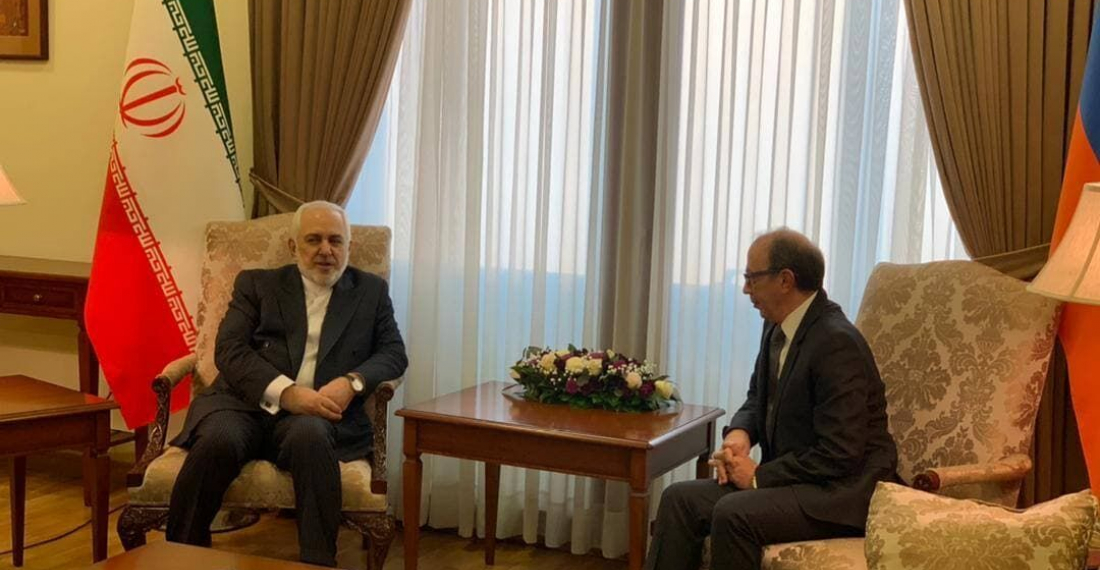During a stop over in Yerevan as part of his regional tour Iranian Foreign Minister, Mohammed Javad Zarif on Wednesday met with Armenian prime minister Nikol Pashinyan, as well as with his Armenian counterpart Ara Ayvazyan and other senior Armenian officials
Speaking on his arrival in Yerevan, the Iranian Foreign Minister said that cooperation between the countries of the region can bring long-term peace and stability. Zarif said, with regards to the recent conflict in the Caucasus, "After this catastrophic tragedy, in which many civilians and soldiers lost their lives, an opportunity for cooperation and confidence-building in the region has been provided."
Later, Zarif met with Armenian prime minister Nikol Pashinyan. With reference to the recent Karabakh war the Iranian foreign minister told the Armenian leader:
"Of course, you know the position of the Islamic Republic of Iran on the crisis. It is the observance of international law, the preservation of peoples, the preservation of minorities, as well as the preservation of territorial integrity, the non-use of force. Of course, you are aware of the assertion of our caring leader, which is to protect the security of the Armenians, as well as to ensure their dignified life. You know that we host our Armenian compatriots in Iran, we are always ready to serve them, we have very good and warm relations with them. Let me thank you once again for your warm welcome, as well as for giving me this opportunity to meet."
It was also announced that the Minister of Economy of Armenia is visiting Tehran on Friday to consult on increasing the level of trade relations between the two countries. The invitation comes from the Iranian Minister of Industry, Mines and Trade. The tour will include visits to several factories.
Prior to his Armenia visit, Zarif visited Azerbaijan and Moscow. After Armenia, Zarif will follow continue his regional tour by flying to Georgia and Turkey.
In Russia, Zarif discussed bilateral relations and developments in the region, especially the situation in Nagorno-Karabakh and the future of the JCPOA agreement, with his Russian counterpart, Sergei Lavrov.
The Iranian minister's regional tour is an effort to boost friendship and economic cooperation in anticipation of a new atmosphere of global affairs.
read more on commonspace.eu: Iran says it is ready for co-operation with Azerbaijan on regional projects







